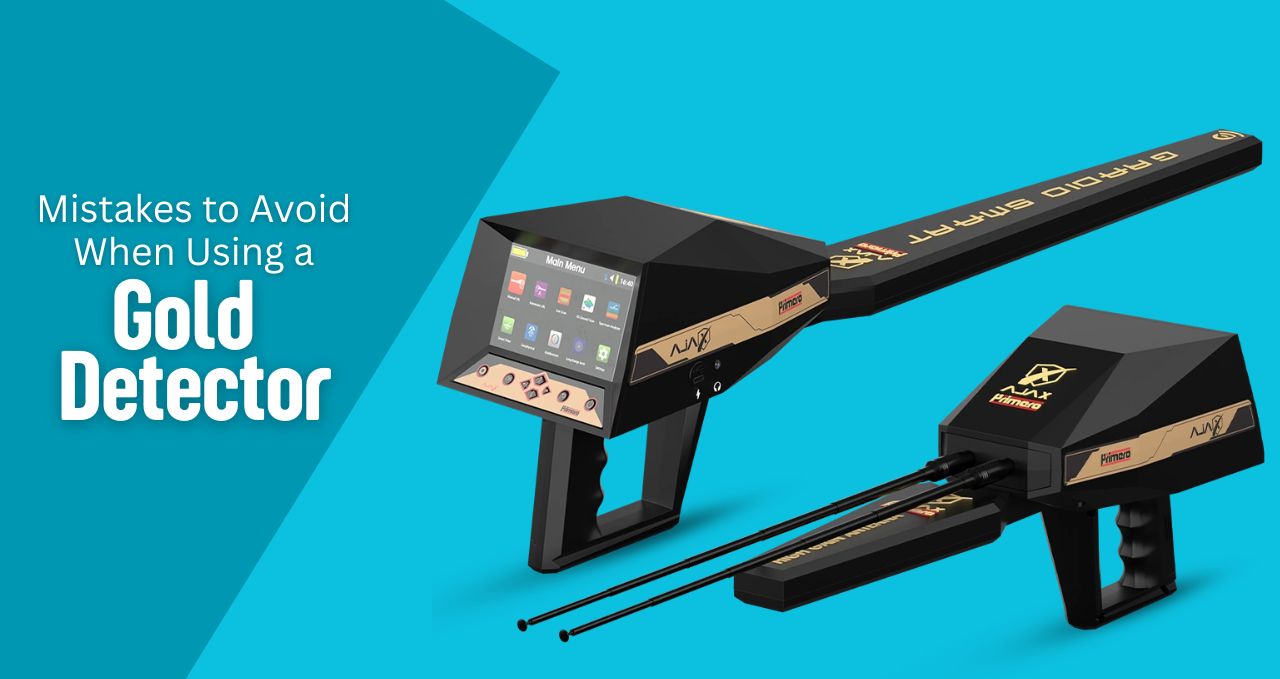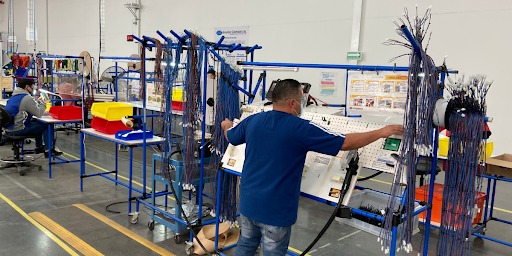5 Common Mistakes to Avoid When Using a Gold Detector

Strong 8k brings an ultra-HD IPTV experience to your living room and your pocket.
Introduction
Using a gold detector can open the door to thrilling discoveries and life-changing moments, but success largely depends on the user’s understanding of the device and the process. While modern detectors have advanced considerably in design and technology, overlooking small details or misusing the equipment can lead to missed opportunities and frustration.
It’s not uncommon for beginners and even seasoned users to make errors that drastically reduce detection accuracy. From choosing the wrong terrain to ignoring the detector’s signals, every misstep could cost you valuable finds. Before diving into the technicalities, it's important to familiarize yourself with the best equipment suited for your purpose. If you're planning to upgrade or buy one, consider visiting this gold detector collection for high-quality and reliable options.
Improper Ground Balancing
One of the most overlooked yet critical mistakes in using a gold detector is neglecting proper ground balancing. Ground balancing is the process by which the detector adjusts to the mineral content in the soil to avoid interference. If this step is skipped or done incorrectly, it can result in false signals or missed targets.
Every terrain has different levels of mineralization. Highly mineralized ground can confuse the detector’s signal and result in noise or signal drift. To avoid this, always calibrate your gold detector before starting your search. Take the time to read your device’s manual and practice in various soil types to understand how it responds. This will significantly enhance your chances of success and reduce frustration in the field.
Swinging Too Fast or Too High
Speed and height are critical elements when using a gold detector. A common mistake made by users is swinging the coil too fast or too far above the ground, which can cause the device to miss small or deeply buried gold targets. Metal detection is a deliberate and methodical process that requires a steady hand and patience.
Keeping the coil close to the ground—ideally just above the surface—and moving at a slow, consistent pace allows the detector to scan thoroughly. If you rush the sweep, the device won’t have time to respond accurately to signals. Practicing slow, overlapping sweeps ensures no ground is left unchecked and increases your odds of locating valuable finds.
Ignoring Detector Signals or Misinterpreting Them
Even experienced treasure hunters sometimes ignore faint or inconsistent signals, assuming they are false alarms or trash. However, gold targets often produce weak signals, especially when deeply buried or surrounded by mineralized soil. Dismissing these signals could mean walking away from a precious find.
It’s also important to understand the tones and signals specific to your gold detector. Spend time learning how your device communicates various metal types. Use test targets like small gold nuggets or coins to familiarize yourself with the tones your machine emits. This practice will train your ear and build the confidence needed to dig when it matters.
Using the Wrong Type of Detector for the Terrain
Not all detectors are created equal, and using the wrong one for a specific terrain is a mistake that can waste hours of effort. For example, some detectors are designed for coin shooting or relic hunting and are not optimized for detecting gold in mineral-rich soils or hard bedrock areas.
Before heading out, research the area you plan to search. If you're targeting gold in desert regions, opt for a detector specifically built for gold prospecting. These devices are more sensitive to small gold particles and better equipped to handle challenging environments. Matching your detector to your environment is key to maximizing your success.
Neglecting to Maintain the Equipment
Many users underestimate the importance of equipment maintenance. Dirt, moisture, and wear can affect your gold detector’s performance over time. Allowing mud to accumulate on the coil or storing your detector in humid conditions without proper care can damage its internal components.
After every use, clean your detector thoroughly, especially the coil. Store it in a dry place and keep batteries charged or removed when not in use for long periods. Regular maintenance doesn’t just extend the lifespan of your device—it ensures consistent and reliable performance in the field. Investing time in upkeep is an easy way to protect your investment and get the best results each time you search.
Enhancing Your Treasure Hunting Experience
Understanding what not to do is just as important as knowing what to do when it comes to using a gold detector. Avoiding these common mistakes can drastically improve your chances of striking gold, quite literally. But beyond the mechanics and strategies, patience, observation, and learning from the field make all the difference.
Gold hunting isn’t just about equipment; it's a blend of knowledge, technique, and intuition. Take time to refine your skills, experiment with settings, and record your findings. With dedication and awareness, your journey with a gold detector can become not only rewarding but incredibly enjoyable.
Note: IndiBlogHub features both user-submitted and editorial content. We do not verify third-party contributions. Read our Disclaimer and Privacy Policyfor details.







